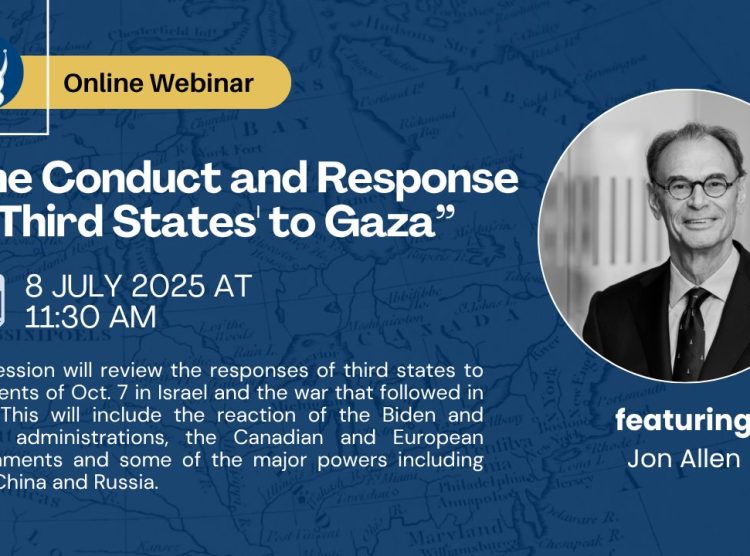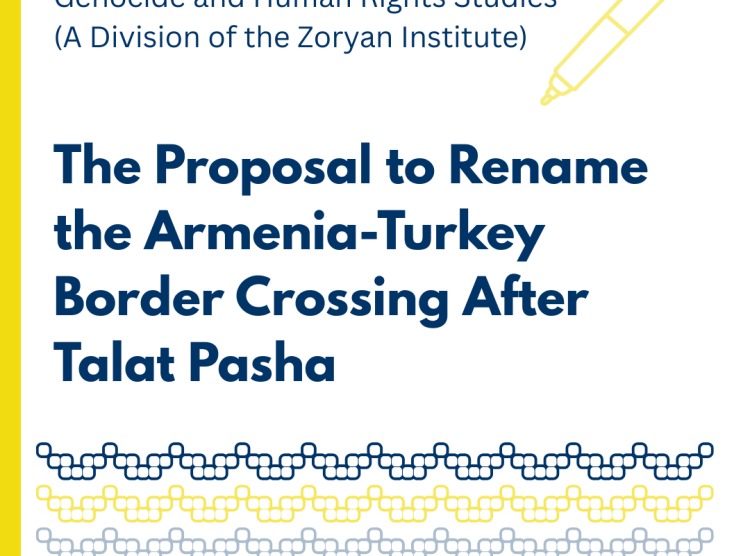November 29, 2021: On Saturday, November 20, the Zoryan Institute hosted a joint Academic and Corporate Board Meeting to reflect on its achievements of the past two years and discuss its future direction.
The meeting opened with a celebration of the Institute’s success over the past two years, by Dr. Roger W. Smith, Chair of the Academic Board, whose nearly 40 years of involvement with the Institute has been central to its success:
“What I notice, beyond the sheer volume of the Institute’s work, is the variety. From Zoom webinars, to art, to oral history and animated films, to print publications, and even conferences – it is an incredible range of things that we’re doing.”
The Board reviewed the Zoryan Institute’s work over the past two years, involving the launch of three publications, new research projects and institutional partnerships. Highlights included:
- The Genocide and Human Rights University Program (GHRUP): Course Director, Professor Joyce Apsel, discussed how implementing the two-week, intensive graduate-level GHRUP virtually in 2021 allowed the program to reach a new multidisciplinary constituency, and encouraged intensive dialogue.
- Webinars: The Genocide and Human Rights Webinar Series has attracted new scholars and audiences to the Institute’s programs, through sessions that blended theory with in-depth discussions about current events.
- Aurora’s Sunrise (forthcoming): This animated documentary, produced with a US 1 million dollar budget, tells the story of an iconic young female genocide survivor.
- Three new books: Collective and State Violence in Turkey: The Construction of a National Identity from Empire to Nation-State, The Chinese Diaspora: Its Development in Global Perspective, and Forces & Factors.
- Journals: The Zoryan Institute celebrated the 30th anniversary of Diaspora: A Journal of Transnational Studies, edited by Sossie Kasbarian and Talar Chahinian, and the 15th anniversary of Genocide Studies International, edited by Alex Alvarez, Jennifer Rich and Henry Theriault.
Following the review, the Board shifted its focus to the Zoryan Institute’s five year plan in a time of immense change. As Roger Smith highlighted, not only is the field of genocide studies changing, understanding of the term “genocide” is also evolving. He stressed that there may be a need to redefine and broaden the notion of genocide to include considerations such as non-state actors, failing states, and warlords. He also raised how the many manifestations of climate change, including loss of sovereignty, migration, and water becoming a hot commodity, will result in massive conflicts and huge loss of life. These are issues the Institute may need to consider as it navigates its future.
Zoryan Institute President, K. M. Greg Sarkissian, then explained that over the past 40 years, the Institute has made an impact and influenced change through academic work.
In a discussion about how the Institute can continue this legacy, UC Berkeley Professor Lok Siu raised that technology is changing how we interact with the world. University of Calgary Professor Maureen Hiebert added,
“In relation to Human Rights and Genocide, we could look at the role of technology in fostering conflict and driving divisions at the hands of both state and non-state actors.”
In closing this discussion, Dr. Rouben Adalian, stated,
“The vital expertise of the Zoryan Institute Board Members always kept the Institute at the forefront of addressing many of the serious challenges faced by humankind.”
The Institute is also pleased to announce its future will be guided by new leadership on the Academic Board, Co-Chair, Dr. Maureen Hiebert with current Chair, Dr. Roger Smith, and Vice-Chair, Dr. Alexander Alvarez. Both Dr. Hiebert and Dr. Alvarez have been extensively involved in the work of the Zoryan Institute, serving as editors of Genocide Studies International, and as faculty members in the GHRUP.
Maureen Hiebert
Co-Chair of the Academic Board
Associate Professor of Political Science and Senior Research Fellow at the Centre for Military, Security & Strategic Studies at the University of Calgary
“I am looking forward to transferring the ideas discussed today into action, and I am excited to see what we all do together.”
Alexander Alvarez
Vice-Chair of the Academic Board
Professor in the Department of Criminology and Criminal Justice at Northern Arizona University
“Time is precious, and I am happy that I can work with the Zoryan Institute to do work that I genuinely believe in.”
The board meeting adjourned on these optimistic notes, with members enthusiastic about and committed to the Zoryan Institute’s future as it moves forward with new leadership.
Zoryan Institute, a non-profit organization, serves the cause of scholarship and public awareness relating to issues of universal human rights, genocide, and diaspora-homeland relations. This is done through the systematic continued efforts of scholars and specialists using a comparative and multidisciplinary approach and in accordance with the highest academic standards.







